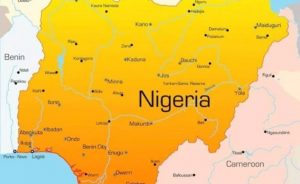Cyber Africa Forum highlights Benin’s bold digital resilience

This week, Business Africa makes a stop in Benin for a special edition focused on three pillars of its economic and digital transformation.
At the heart of this edition is the Cyber Africa Forum in Cotonou, where Benin stands out as a key player in digital resilience on the continent. There is also a spotlight on the evolving cotton industry with the ambition to create local value, and finally, a look inside modern markets, symbols of visible development yet still disconnected from the daily reality of many citizens.
The Cyber Africa Forum calls for digital resilience in Africa with Benin leading the way
The fifth edition of the Cyber Africa Forum was held on June 24 and 25 in Cotonou. The central theme was the resilience of African digital ecosystems. More than a thousand participants from across the continent gathered to discuss the growing threats in cyberspace and the concrete responses needed.
The forum’s general commissioner, Franck Kié, emphasized the strategic importance of resilience. According to him, it has become a vital necessity because the continent has not always been able to anticipate risks. He states that this theme is concrete and means the need to anticipate, plan for, and prepare for the current and future shocks that Africa is facing.
As the host country, Benin stands out for its commitment. In just a few years, it has made a significant leap in the Global Cybersecurity Index, moving from 149th to 56th place worldwide, and now ranks sixth in Africa. This progress stems from a rigorous national strategy. The Director General of the National Center for Digital Investigations, Ouanilo Médégan Fagla, explained that Benin is working to strengthen the capacity of stakeholders to design resilient information systems from the ground up. He stressed that resilience also involves a rapid and effective response to incidents.
The country has established an ambitious legal and operational framework. Two key policies are at the forefront: one focuses on the security of state information systems, and the other on the protection of critical information infrastructures. These frameworks include business continuity and recovery mechanisms in case of attacks or disasters.
Benin is also betting on training. The Hacker Lab, launched in 2017, identifies and trains young talents in cybersecurity. These individuals are then integrated into national operational teams. For Ouanilo Médégan Fagla, the goal is not just to identify talent but to build a solid operational force exposed to both technical and human challenges capable of supporting major digital reforms.
Through these concrete actions, Benin aims to establish itself as a continental benchmark in cybersecurity and digital sovereignty.
Cotton betting on local transformation
Cotton, often referred to as the “white gold,” remains a key pillar of Benin’s economy. The 2024–2025 season has been especially promising, with production estimated at 669,000 tons, placing Benin at the top of African producers ahead of Mali.
But this raw commodity is increasingly being processed locally. Launched in 2020, the Glo-Djigbé Industrial Zone, or GDIZ, has dramatically shifted the paradigm. This vast 1,640-hectare area, developed as a public-private partnership, hosts facilities for spinning, weaving, dyeing, and garment manufacturing.
Currently, three operational factories process approximately 40,000 tons of cotton annually, which accounts for roughly 12 percent of the nation’s production. These facilities produce finished goods, including uniforms, towels, and t-shirts, which are exported to Europe, the United States, and across Africa.
The ambitions are bold. GDIZ plans to house 28 integrated units, generating up to 14 billion dollars in market value annually and creating 300,000 direct jobs by 2030.
This strategy is supported by an environmentally responsible approach. GDIZ is committed to achieving zero waste and low-carbon production through the use of solar energy.
The government, led by President Patrice Talon, is strongly promoting this model, often referred to as the king of cotton. The recent ban on raw cotton exports, effective as of May 2025, aims to encourage further domestic processing and capture more added value locally.
In short, Benin is working to transform its cotton from a basic agricultural commodity into an industrial lever geared toward exporting finished products. This ambitious strategy, if successful, could reinforce the country’s economic diversification and strengthen its industrial sovereignty.
Modern markets upgraded infrastructure low purchasing power
Despite a projected growth rate of 6.8 percent in 2025, many Beninese struggle with the rising cost of living. In the new modern markets built by the government, traders are facing declining sales. Suzanne a customer at a Godomey market says she can no longer fill her shopping basket.
In Pahou, vendor Affissatou points out the need to include informal traders operating along the roads in order to boost business activity. While the infrastructure is in place, purchasing power now needs to catch up.
By Ndea Yoka



